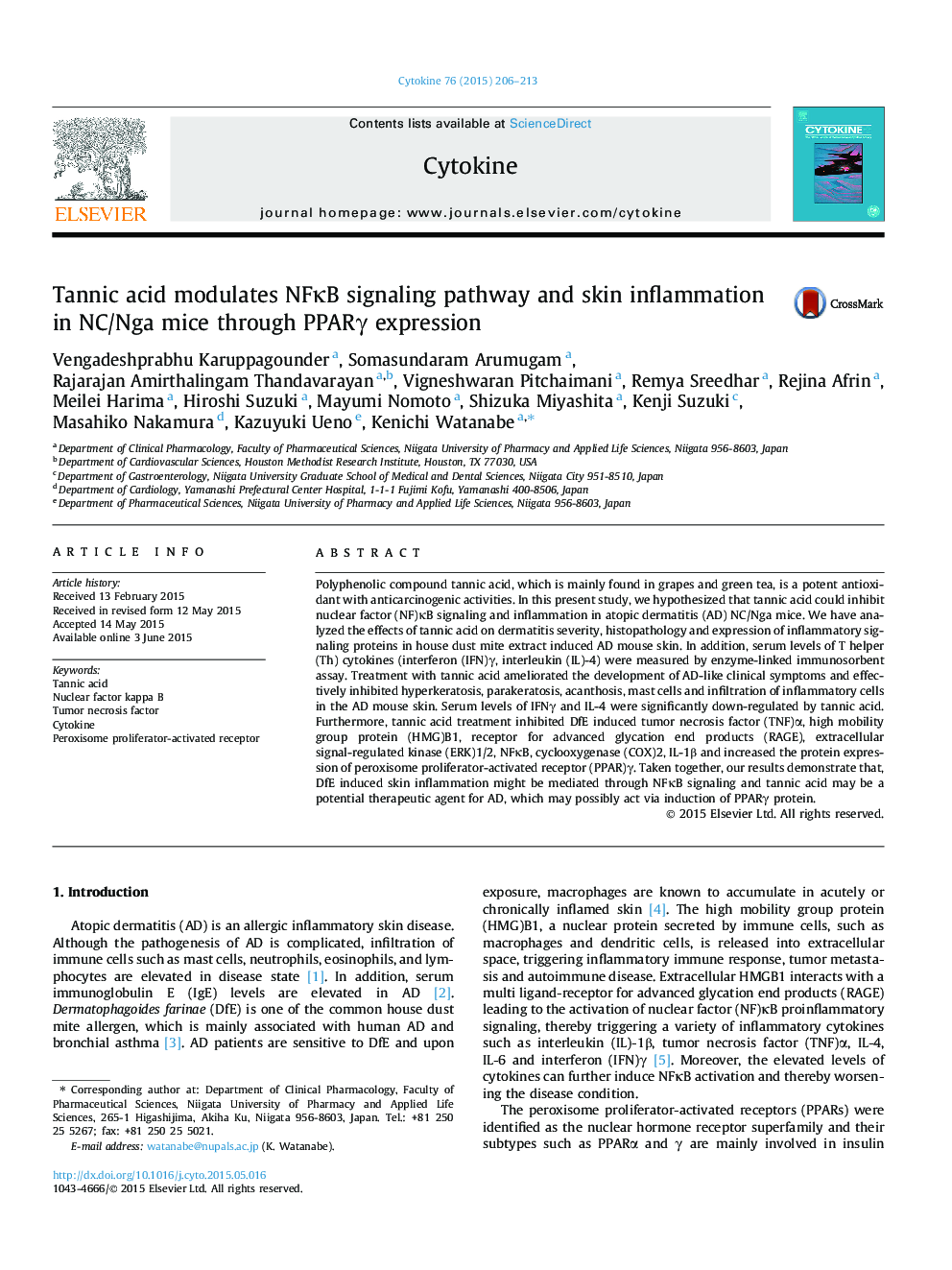| کد مقاله | کد نشریه | سال انتشار | مقاله انگلیسی | نسخه تمام متن |
|---|---|---|---|---|
| 2793959 | 1155242 | 2015 | 8 صفحه PDF | دانلود رایگان |

• Tannic acid modulates skin inflammation in house dust mite induced AD mouse skin.
• Treatment with tannic acid inhibited the infiltrated inflammatory cells.
• Tannic acid effectively suppressed NFκB protein expression.
• It also increased PPARγ protein expression in the AD mouse skin.
Polyphenolic compound tannic acid, which is mainly found in grapes and green tea, is a potent antioxidant with anticarcinogenic activities. In this present study, we hypothesized that tannic acid could inhibit nuclear factor (NF)κB signaling and inflammation in atopic dermatitis (AD) NC/Nga mice. We have analyzed the effects of tannic acid on dermatitis severity, histopathology and expression of inflammatory signaling proteins in house dust mite extract induced AD mouse skin. In addition, serum levels of T helper (Th) cytokines (interferon (IFN)γ, interleukin (IL)-4) were measured by enzyme-linked immunosorbent assay. Treatment with tannic acid ameliorated the development of AD-like clinical symptoms and effectively inhibited hyperkeratosis, parakeratosis, acanthosis, mast cells and infiltration of inflammatory cells in the AD mouse skin. Serum levels of IFNγ and IL-4 were significantly down-regulated by tannic acid. Furthermore, tannic acid treatment inhibited DfE induced tumor necrosis factor (TNF)α, high mobility group protein (HMG)B1, receptor for advanced glycation end products (RAGE), extracellular signal-regulated kinase (ERK)1/2, NFκB, cyclooxygenase (COX)2, IL-1β and increased the protein expression of peroxisome proliferator-activated receptor (PPAR)γ. Taken together, our results demonstrate that, DfE induced skin inflammation might be mediated through NFκB signaling and tannic acid may be a potential therapeutic agent for AD, which may possibly act via induction of PPARγ protein.
Journal: Cytokine - Volume 76, Issue 2, December 2015, Pages 206–213